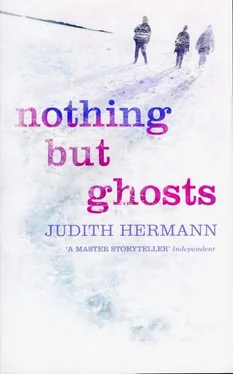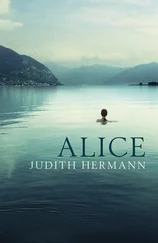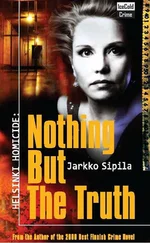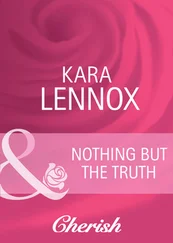[Translator’s note: the excerpt quoted is from Molièere, The Misanthrope and Other Plays: A New Selection, translated by John Wood and David Coward, Penguin Books, 2000, p. 114.]
The package arrives early in the morning. There’s postage due because Jonas didn’t put on enough stamps. It is addressed to both of them, to Jonina and Magnus. Magnus is sleeping. Jonina sits down on the white sofa by the window. It is still dark and she has to turn on the light. She doesn’t hesitate, not even for a moment. Maybe she acts as if she were hesitating, but she isn’t. She wouldn’t think of waiting for Magnus to get up. The package is rectangular and flat; it feels a bit heavy, there’s a ‘handle with care’ sticker on it, and the wrapping paper is sloppily secured with sticky tape. Amazing that it arrived in one piece. She rips open the paper and pulls out a framed photograph, very painstakingly framed, the photo surrounded by a green mount, and an enclosed card, nothing else: ‘The photo comes a little late, but we’ve been thinking of you constantly. The beautiful blue hour, eleven o’clock in the morning of December 3rd, much too short. Regards – see you soon. Jonas.’ The phrase a little late might be considered amusing; it was exactly a year ago; that’s not a little. It might be a little for Jonas. She doesn’t want to think about the phrase see you soon.
In the photo, the moon is suspended above the road that leads to the Old Althing. The sky is a glowing, diaphanous blue, everything else is white; the road is white, the mountains are white, blanketed in deep snow. Magnus, Irene and Jonina are walking towards the camera. Magnus in the middle; he is blurry, his face unrecognizable. Jonina is on his right, Irene on his left. The distance between Jonina and Magnus is greater than the distance between Irene and Magnus. Irene is laughing; she walks straight ahead. Jonina seems to want to walk out of picture towards the right but is looking directly into the camera. Jonas was standing in the middle of the road, his camera mounted on a tripod. Afraid that the light would change, he had yelled at them – ‘Now!’ Jonina remembers how he looked just then, his woollen hat pulled down over his eyes, the sheepskin jacket open, swearing at the cold, delighted and enthusiastic.
It’s not that Jonina has forgotten that beautiful, much-too-short, blue hour. She hasn’t forgotten it. She remembers it exactly, and if she wants to she can recall everything else too, each detail of those seven days. The Soviet star on Jonas’s belt buckle, the ring on Irene’s left hand – a moonstone in an oval setting – blueberry-flavoured Absolut vodka in a large frosty bottle. Coffee with sugar but no milk for Magnus in a snack bar on the Ring Road going north, the weather forecast on the third day they were together. Sunna’s childish drawing of two pugnacious snowmen and the colour of Jonas’s eyes – green, dark green with a thin yellow band encircling the iris. She hasn’t forgotten any of it. She just hasn’t been thinking about it any more. Thinking about it only induces a feeling of heaviness and weariness. And now she holds the photo in her hand early in the morning – nine o’clock, it’s not even light outside – and again she remembers everything. She can’t decide whether she wants to remember or not, but she can’t help it – everything comes back to her.
She recalls how she and Magnus were driving down the Barugata in their car; Irene and Jonas stayed behind, waving to them from the side of the road. ‘That’s that,’ Magnus had said, and Jonina wanted to say, ‘Stop, let me out. Let me out,’ but didn’t say anything. And they turned a corner and Irene and Jonas were gone, had vanished, once and for all. That was that.
She could hang the photo on the wall above the table, on the shiny grey unblemished wall and surprise Magnus with it when he got up. She could hammer a nail into the unmarred surface of the freshly painted wall and hang the photo on it. It is a beautiful photo. They’ll have to hang pictures in the apartment anyway. They’ll have to acquire things; there’s got to be some disorder and some dirt in this unlived-in cleanliness, otherwise she won’t be able to cope. But not this photo. Anything, but not this photo, not Jonas’s beautiful glimpse of this one, much-too-brief, blue hour.
Irene and Jonas were coming to Iceland for the very first time in late November. Magnus had known for a month they would be coming, but he doesn’t tell Jonina till fairly late: ‘I’m expecting visitors from Berlin tomorrow.’ Jonina doesn’t ask him why he waited so long to tell her. It will be disconcerting for him; visitors from the past are always disconcerting. On the other hand, she is rather curious. She has known Magnus for two and a half years. She had never seen him before that, and for Iceland that’s unusual, but that’s the way it was. They didn’t attend the same school; they were not distantly related; they hadn’t by coincidence gone to the same rock concert. They saw each other for the first time in 1999. Later they discover that Bjarni, the father of Jonina’s daughter, Sunna, had been Magnus’s best friend at school. They discover this long after all contact between Jonina and Bjarni was broken off. Magnus grew up on the west coast and Jonina on the east coast. When he was twenty, Magnus went to Berlin. Jonina went to ‘Vienna. Magnus studied psychology. Jonina studied literature. Twelve years later, they returned to Iceland at about the same time. In the end all Icelanders come back to Iceland, almost all. They study or work abroad and live there ten, twelve or fifteen years, and then it’s enough, and they come back. Almost all of them.
Jonina has never been to Berlin. She doesn’t know what that city in which Magnus lived for twelve years looks like. She can’t imagine what he looked like in those years, what he was like, what he did, can’t imagine him speaking German and spending his days with German girls.
When they first met, they talked a lot about those days abroad, how it felt to be a foreigner, and about the happiness and hardships experienced. They talked about it as if it were something that happened a long time ago and in no way affected the present. They never speak German with each other, not even for fun. They don’t even give it a try. A different Magnus and a different Jonina.
But she loves the story about Magnus’s first days in Berlin and the story about his departure. Perhaps she loves these two stories because they form a frame for the time before she knew Magnus; they enclose it and put an end to it.
Magnus was living in a one-room apartment in a rear building in Berlin-Neukölln. It is the winter of 1986 and colder in Berlin than it ever gets in Iceland, 20° below zero. His apartment has a tile stove but Magnus doesn’t know how to work it. All he has is a mattress, nothing else. When he comes home from the Institute, he lies down on the mattress with his clothes on, covers himself with a quilt, and smokes and reads. He has no curtains. His room faces the rear courtyard. Everyone else has curtains; he knows that they can see him lying in bed, smoking, alone – he doesn’t care. Around midnight he goes to a bar, annoying everyone there with his childish German, and stays till they throw him out. He knows some other Icelanders in Berlin, and he gets together with them, but he didn’t go there because of them. He’d love to meet someone, a foreign girl, just not a psychology student. But it doesn’t work; he remains alone. And then one day when he comes home, there’s a letter lying on the floor in the hall, dropped through the letterbox, a small, white, folded piece of paper. He takes the paper to bed, lights a cigarette, unfolds it and reads: ‘Hey, old man, I can see you, man. You’re pretty much alone and you lie around in your bed all evening and every weekend reading, and you really seem to be all alone, and I thought, maybe you could just drop in sometime. Side wing, fourth floor, left. Slick Chick.’ That’s all. Jonina loves this story. She loves it when Magnus mimics the Berlin accent: ‘Hey, old man, I can see you, man.’ And even though that was just what he had been wishing for, to meet someone by chance, he finds it impossible to simply drop in on someone who addresses him with ‘Hey, old man’. He never went to see Slick Chick; he doesn’t even know what she looked like. He says that sometimes he regrets it.
Читать дальше












